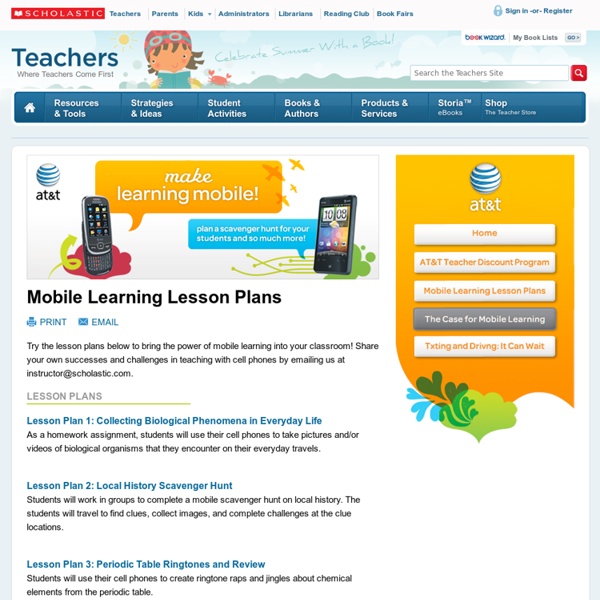



M that learning! Mobile Learning: 50+ Resources & Tips I believe mobile devices will transform education. This is why I created a free ebook, Effective Mobile Learning: 50+ Quick Tips & Resources with helpful tips and several resources to help support this trend. One reason is because mobile devices are designed in a way that forces the teacher to give control to the learner. Mobile Learning Free Ebooks Mobile Learning Posts/Presentations I’ve Given Mobile Learning LiveBinder of Resources Mobile Learning Mindmap of Implementation This mindmap is full of case studies, schools, teachers, free ebooks, and more to show real examples of mobile learning at its best.
Free Technology for Teachers The Top 10 Free Web Tools to Curate and Bookmark Online Resources for Teachers Curating, bookmarking and sharing web content is one of the skills every 21stcentury teacher should have. Internet has grown to be, if not the primamry then a great resource of information and knowledge. Students as well as educators are having a free unlimited access to this treasure trove whenever and wherever they are.One of the things we need to pay heed to, howver, is the information load the net exposes us to. So after having learned how to clip web content and annotate it using this list of great free web annotating tools, we are going to explore some of the equally important and free tools but this time for bookmarking and curating web content. The bookmarking and content curating tools below are very important in the sense that : Here is the list : 1- Evernote This is one of my favourite tools for bookmarking and curating content. 2- Livebinders This is another awesome service that every teacher should be using. 3- Pinterest 4-ScoopIt 5-Delicious 6- Diigo 7- NetVibes 8- MentorMob
Five apps for building online polls and surveys You don't have to be a genius statistician to create useful, friendly polls and surveys. These online tools make the process a snap. Why do we love polls so much? It just feels really good to share your opinion about something -- whether you're weighing in on your favorite videos, choosing a new design, making a political comment, or voting for the best vacation spot. Note: This list is also available as a photo gallery. 1: Poll Everywhere Poll Everywhere (Figure A) is a fun and easy-to-use polling app that is designed to help you get a quick, live response from your audience, whether they're using their browsers or their smartphones. Figure A Poll Everywhere lets you gather and share instant poll results. You can share your poll results on Facebook or Twitter or send others a link to view the results. Poll Everywhere is available with a basic free account that enables you to create an unlimited number of polls for up to 40 people. 2: EasyPolls EasyPolls was a bit surprising. Figure B